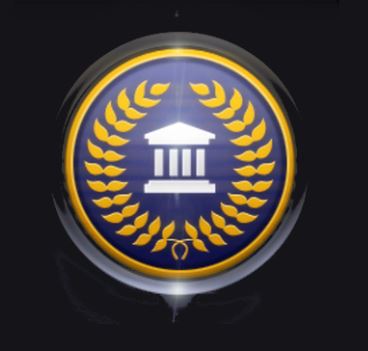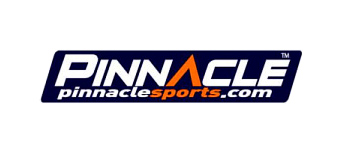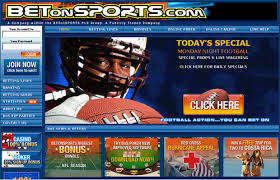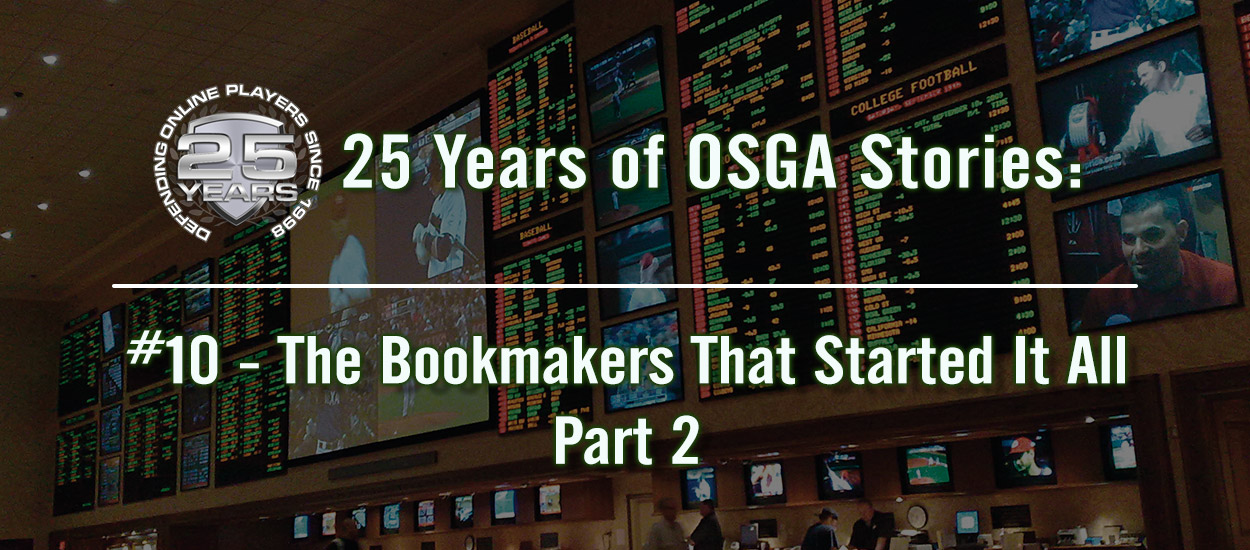The UIGEA and U.S regulations forces top bookmakers out of the online sports betting business
For the last part of the OSGA 25 Year series, I am going to examine the second five of the 10 bookmakers or executives of bookmaking services that were instrumental in helping form the online sports betting industry. To find 5 additional innovative bookmakers, click here.
Spiros Athanas
Spiros was a bookmaker from Boston who decided to set up operations in the Montego Bay Free Trade Zone in Jamaica in 1998. Unlike Antigua, Costa Rica and Curacao, who licensed sportsbooks to take bets worldwide, Jamaica didn’t have a gambling economy. In fact, betting by locals was illegal. So, the Jamaican government gave Athanas a telemarketing license to operate from the free trade zone under the name Olympic Sports Data Services. Spiros’ sharpness with lines, personality and willingness to take large bets made him an immediate leader in the business. Athanas created accounts with all the sports betting forums and answered any questions customers had. He even agreed to join podcasts with the watchdog site owners. Any withdrawals were handled quickly and efficiently and betting forums and watchdog sites suggested that money at Olympic Sports was as safe as being in a bank. This turned out to be the most important attribute for Spiros who created the slogan on its website “sweat the game, not the payout,” a reference to other companies that were setting up shop with huge incentives and bonuses, but closing down almost immediately and running off with player money due to the inability to pay winnings.
The company had to change its name when the Olympics issued a cease-and-desist order against Olympic Sports, since any product with the name Olympic was trademarked, so Spiros agreed to change the name to The Greek Sportsbook to avoid a lawsuit.  It also seemed the company could lose its license in 2003 after British and Jamaican government officials said the company was operating an illegal bookmaking service. But, the suit was never pursued and the Jamaican government agreed to allow the company to operate as a gambling operation provided they did not take bets from Jamaican citizens. The Jamaican government realized that not only were they getting a decent payout from The Greek as a part of the telemarketing agreement, but The Greek also hired many locals in an economy ripe with unemployment, and the salaries The Greek paid were far higher than other industries. Moreover, Spiros helped teach locals in the company the business of bookmaking and as they moved up, they were paid as executives.
It also seemed the company could lose its license in 2003 after British and Jamaican government officials said the company was operating an illegal bookmaking service. But, the suit was never pursued and the Jamaican government agreed to allow the company to operate as a gambling operation provided they did not take bets from Jamaican citizens. The Jamaican government realized that not only were they getting a decent payout from The Greek as a part of the telemarketing agreement, but The Greek also hired many locals in an economy ripe with unemployment, and the salaries The Greek paid were far higher than other industries. Moreover, Spiros helped teach locals in the company the business of bookmaking and as they moved up, they were paid as executives.
Spiros was an expert on American football and basketball and handled all bets on those sports alone. He knew the lines and the bettors and their IDs by heart. One of the clerks would yell out “58739 wants to bet 10 dimes on the Rams -5.” If the bettor was a sharp player Spiros would often yell back, “take the bet and move the line to Rams -5 -120.” If the bettor was not a sharp or perennial loser asking for the same bet he would often say “take the bet and move the line to -5 +100” hoping to get more money on the team. Spiros also knew his limitations, so he hired linemakers who were better at other sports to help him create lines for sports like hockey, golf or tennis and he was the first to create props on all sports. Spiros hired prop experts who put up multiple props on every single game for the four major sports, including football, basketball, hockey and baseball. The Greek became known as being the line originator and he often was the first to take bets on sports that no one ever offered simply because customers asked for it. He was famously was the first to take bets on North American curling and CFL props simply because they were requested. The Greek also had exceptional customer service and bettors knew if they had an issue, longtime Spiros associate, Wally, would solve it for them.
Spiros also knew his limitations, so he hired linemakers who were better at other sports to help him create lines for sports like hockey, golf or tennis and he was the first to create props on all sports. Spiros hired prop experts who put up multiple props on every single game for the four major sports, including football, basketball, hockey and baseball. The Greek became known as being the line originator and he often was the first to take bets on sports that no one ever offered simply because customers asked for it. He was famously was the first to take bets on North American curling and CFL props simply because they were requested. The Greek also had exceptional customer service and bettors knew if they had an issue, longtime Spiros associate, Wally, would solve it for them.
In 2013 Spiros was named in a lawsuit by the U.S. Attorney’s office along with 33 others for their involvement with Legendz Sports based in Panama. The government originally issued 20 different charges against Athanas but chose to charge him with racketeering, money laundering and Illegal bookmaking. He eventually pled guilty and stepped away from The Greek, leaving the operations to be run by other bookmakers he trusted. To try and ensure his site would not get caught up in the indictment, Spiros announced that The Greek would no longer take U.S. action as of 2013. Pinnacle Sports which were apparently warned by the U.S. to stop taking U.S. action or face a lawsuit cut off American customers years before. This decision was the beginning of the end for The Greek. The company never achieved the volume it had earlier and non-American bettors were generally sharper than American bettors so The Greek found they were not getting the profits they had originally made. A few years later a silent partner of the Greek said he wanted out and in 2019 Athanas made the difficult decision to shut down the site. He worked out a deal with BetCris to take The Greek customers and any bettors who wanted their money back were paid, sticking to Spiros promise to always pay the bettors.
For his reputation in helping build confidence in the industry, for helping create props on all sports that are popular today, for helping provide employment to locals with good salaries and for showing other books how traditional bookmaking should be done, Spiros Athanas is a bookmaker that helped shape the offshore online gambling industry.
Jimmy Evart - "Henry"
In the 1980s the Computer Group were one of the most feared betting syndicates by bookmakers in Las Vegas. Most bettors relied on judgement, but the computer group turned to the computer for analysis. The Computer Group became the most influential source of lines and sports betting in the mid 1980s. The group was headed by Michael Kent, but he brought in various others, including most notably Billy Walters, Dr. Ivan Mindlin, Jimmy Evart and Stanley Tomchin. Evart and Tomchin handled most of the bets in New York that were responsible for placing the majority of wagers for the Group. They were Ivy League students that learned from Kent how the computer could predict games and were known in New York as “The Computer Kids.” The Computer Group made almost a million dollars a week and claimed to have never had a losing season on NCAA football or hoops. Tomchin and Evart left the Computer Group in 1984. At that point Walters became the face of the Computer Group, until it disbanded in 1987.
In the late 1980s George Molsbarger co-founded Pinnacle Sports along with "Roger", later of Heritage Sports. They brought in Jimmy Evart and Stanley Tomchin realizing that their expertise in the industry and knowledge of using computers for setting lines would allow them to provide the best lines and utilize a low vig model. Tomchin was known at the company as “Monty” while Evart called himself “Henry” and was the face and spokesman for the company. Pinnacle set the highest limits in the industry on the main sports and never cut off winning players. While other companies shut accounts of winners or cut their betting limits drastically, Pinnacle was known to accept all wiseguy action and would never boot anyone for winning. Evart famously said in an article on Pinnacle “If we are regularly beat to a line, we fire the linemaker not the bettor.” Pinnacle was the first book to offer a racebook and offered back a rebate to those who wagered on the horse racing, realizing the tracks already took out a minimum of 17% from all bets, so in refunding the 3% to players, they were still ahead. They also paid full track prices on “A” tracks with large limits, so horse players could place a large bet without affecting the pools at the track, which would happen if they wagered into track tote pools. For multiple bets such as a Pick 4, Pinnacle refunded the wager rather than replacing the bet with the race time favorite. Evart said "this is for the benefit of the bettor", always ensuring that the bettor’s best interests were the utmost importance.
Pinnacle was the first book to offer a racebook and offered back a rebate to those who wagered on the horse racing, realizing the tracks already took out a minimum of 17% from all bets, so in refunding the 3% to players, they were still ahead. They also paid full track prices on “A” tracks with large limits, so horse players could place a large bet without affecting the pools at the track, which would happen if they wagered into track tote pools. For multiple bets such as a Pick 4, Pinnacle refunded the wager rather than replacing the bet with the race time favorite. Evart said "this is for the benefit of the bettor", always ensuring that the bettor’s best interests were the utmost importance.
Pinnacle also had better odds than other books on sports future bets like odds to win a golf tournament, NASCAR race, tennis tournament, etc., although the higher odds usually involved the longshots and not the favorites. The key was that the overall vig had to be at least 10% lower the industry norm. And for head-to-head bets Pinnacle had the highest limits and lowest vig. While an NFL football game would often have a 20-cent line, Pinnacle’s line was most usually 10 cents, or less. And for major games they would offer a line as low as 8 cents. Pinnacle’s vig was so low that other sportsbooks often bet with Pinnacle to lay off some of their action and Pinnacle was only too happy to take the action, since they knew that they were the sharpest book and would win in the end. If they had too big a liability, often they would lay some of it off, eventually at the Betfair betting exchange.
In 2007, Pinnacle announced it was leaving the U.S. market. There was no reason given, although sources said that the Feds warned the company they were going to have arrest warrants issued against them unless they blocked U.S. action. The company focused its operations elsewhere, but without the U.S. customers they had to raise their vig slightly, shut down the racebook and stopped offering sports such as NASCAR that they felt would not be attractive to non-U.S. customers. At the time of the exit, U.S. customers accounted for 60% of the customer base. The company did well catering to non-Americans, although profits were never the same and in 2012 Pinnacle faced a possible lawsuit after it was discovered that Michael Colbert from Cantor Gaming in Las Vegas was using Pinnacle to place bets. Pinnacle settled with the Feds and then decided it was best to leave all grey markets to focus on Asia and Europe as they sought a UK Gaming license. It is believed about this time Evart left Pinnacle, since non-U.S. sports was not his specialty, along with the fact that they were now attracting a new customer base unfamiliar to them. Paris Smith became the new face and CEO of Pinnacle and she helped make Pinnacle a major factor in their new markets, including a legal Ontario iGaming license in 2022. She then has since left as CEO of Pinnacle, but remains a consultant.
While Pinnacle Sports itself as a whole are bookmakers that helped build the sports betting industry thanks to their low vig, high limit model and showing how books could make money without cutting off winners, Evart is the one highlighted in this article for being the bookmaker who was the face of the company during its heyday and he made most of the decisions that made Pinnacle the best in the business.
David Carruthers
David Carruthers was a Scottish bookmaker who made a career at Ladbrokes Plc in the UK from 1976 to 2000. Considered a brilliant businessman and bookmaker, he oversaw over 1,900 bookmaking shops in the UK. In 2000 he was hired on as CEO of BetonSports, a Costa Rican online bookmaking company founded by Gary Kaplan in 1985 that was believed to have had the most U.S. customers in the business at the time he came aboard. Carruthers was tasked with taking BetonSports public and he achieved this in 2004 when he was able to get the company listed on the British Stock Exchange, raising over $100 million in the IPO. The company grew rapidly and had a handle of close to $1.4 billion by the end of 2003. Carruthers regularly attended gambling conferences in the early 2000s and unabashedly claimed that the U.S. government couldn’t touch him because he was not an American citizen. One year at GIGSE he also said he would pay the NFL $1 billion to be the official bookmaker to the NFL, an offer the NFL never acknowledged. By 2004 BetonSports was a household name for every U.S. gambler as the company advertised heavily in various newspapers and even put out a newsletter. In one controversial PR stunt, BetonSports authorized a giveaway at a Tampa Bay Buccaneers game in 2002. At the event the company had booths set up where they handed out promotional tee shirts and beer and they had a motor home with a sign that read “Action You Can Bet On!” Anyone who entered the motor home could sign up an account with BetonSports and place wagers on the Bucs game. Three people were arrested and fined for illegal bookmaking. It is uncertain if they actually served jail time. Carruthers said the three were only supposed to hand out information on BetonSports and promotional material, not accept bets or solicit sign ups. Regardless, Carruthers also used the motor home at a St. Louis Rams home game, although there they only handed out promotional tee shirts and beer. The Tampa event caught the notice of the Feds who filed the charges after setting up an account with the company, which they called a sting operation and put BetonSports on their watch list as the Feds were in the process of trying to stop offshore gambling. Carruthers also got in some trouble with the UK Stock Exchange since one officer of the company had previously been charged with drug trafficking and that was not revealed at the time of the stock listing.
By 2004 BetonSports was a household name for every U.S. gambler as the company advertised heavily in various newspapers and even put out a newsletter. In one controversial PR stunt, BetonSports authorized a giveaway at a Tampa Bay Buccaneers game in 2002. At the event the company had booths set up where they handed out promotional tee shirts and beer and they had a motor home with a sign that read “Action You Can Bet On!” Anyone who entered the motor home could sign up an account with BetonSports and place wagers on the Bucs game. Three people were arrested and fined for illegal bookmaking. It is uncertain if they actually served jail time. Carruthers said the three were only supposed to hand out information on BetonSports and promotional material, not accept bets or solicit sign ups. Regardless, Carruthers also used the motor home at a St. Louis Rams home game, although there they only handed out promotional tee shirts and beer. The Tampa event caught the notice of the Feds who filed the charges after setting up an account with the company, which they called a sting operation and put BetonSports on their watch list as the Feds were in the process of trying to stop offshore gambling. Carruthers also got in some trouble with the UK Stock Exchange since one officer of the company had previously been charged with drug trafficking and that was not revealed at the time of the stock listing.
Carruthers was a bit cocky and smug and believed he was beyond the reach of the U.S. government so he did lectures at universities hailing the benefits of regulating sports betting, conducted interviews with newspapers and TV stations and challenged websites to oppose orders to block ads for online gambling websites. In April 2006, just months prior to the passing of the UIGEA Carruthers was arrested at the Dallas/Fort Worth Airport while changing planes and charged with racketeering under the RICO Act. Carruthers was put under house arrest in St. Louis, Missouri where the charges were filed. He pled not guilty and stayed under house arrest in Missouri until 2009. During that time, he pled guilty then changed it to not guilty before being released after being sentenced to 33 months in prison, which was considered served due to his house arrest.
Carruthers was terminated in July of 2006 as CEO and almost immediately after, trading on BetonSports was suspended on the British Stock Exchange due to the arrests and the passing of the UIGEA. The company continued operating until March 2007 when Gary Kaplan was arrested in the Dominican Republic and extradited to the United States. Kaplan was sentenced to a large fine and almost four years in prison and BetonSports closed shop with the company handed over to a liquidator. In 2007 a blogger named Hacksaw Hemingway, who was close to the company wrote an eBook called The Rise and Fall of BetonSports where he said that the arrogance of Carruthers combined with the indifference of its employees who were involved in drugs, excessive drinking, sex parties, illegal gambling and other illicit activities all contributed to the inevitable decline of the powerhouse sportsbook as it took a relatively unknown book and put it on the government watch list. After the liquidation, BetonSports players received just under 5 cents on the dollar in the settlement.
Despite the tragic end to BetonSports. David Carruthers was instrumental in the building of the industry as he was able to take a U.S.-facing gambling company, outside of America, public. In addition, he was willing to take on the U.S. government and was the impetus in pushing for regulation, which almost certainly was instrumental in convincing the likes of NBA Commissioner Adam Silver to stop opposing sports betting and push for legalization and regulation instead. His arrest also showed other offshore companies that flaunting success and challenging the U.S. government was not a good strategy.
Calvin Ayre
Calvin Ayre was a systems design analyst who in the 1990s figured gambling would be ideal for the internet before it became popular. He offered the only internet service in Vancouver and later provided software for the gambling industry before deciding to set up an internet gambling site of his own. The site started as Grand Prix Sports and evolved into Bodog, a sportsbook based in Costa Rica. Bodog advertised extensively and had immediate success, particularly in North America but because the U.S. federal government seemed intent on going after all offshore operators, Ayre kept a low profile after launch. At gambling conferences, he handed out business cards with the psuedonym “Cole Turner” instead of Calvin Ayre.
Not long after Ayre decided that to be truly successful Bodog would have to be a brand and he felt that he was best to be the face of the brand.  So, he created Bodog Entertainment Group that included not only online gambling, but also a digital television service, music service, news publishing site and event planning. The brand took off and Ayre became a billionaire. Instead of avoiding attention like he did after the gambling site launch, Ayre put his name and picture out there and became an individual everyone recognized. He was featured in magazines such as Forbes and Star magazine and on TV stations including VH1 and ABC. Where there was a publicity opportunity, he was front and center. He hosted regular events featuring young, scantily clad models he called Bodog girls, hired sports heroes for gambling conferences and was regularly seen on yachts in Antigua with different girls, proudly announcing he was single and a player. He called it the Bodog Life and when asked why he wouldn’t get married he said “why would I make one woman miserable for a lifetime when I can make so many women happy for a few weeks.” The connotation seemed to be that those who used the Bodog sportsbook could end up like him if they hit that one big bet.
So, he created Bodog Entertainment Group that included not only online gambling, but also a digital television service, music service, news publishing site and event planning. The brand took off and Ayre became a billionaire. Instead of avoiding attention like he did after the gambling site launch, Ayre put his name and picture out there and became an individual everyone recognized. He was featured in magazines such as Forbes and Star magazine and on TV stations including VH1 and ABC. Where there was a publicity opportunity, he was front and center. He hosted regular events featuring young, scantily clad models he called Bodog girls, hired sports heroes for gambling conferences and was regularly seen on yachts in Antigua with different girls, proudly announcing he was single and a player. He called it the Bodog Life and when asked why he wouldn’t get married he said “why would I make one woman miserable for a lifetime when I can make so many women happy for a few weeks.” The connotation seemed to be that those who used the Bodog sportsbook could end up like him if they hit that one big bet.
In 2006 after the passage of the UIGEA, Ayre sold the U.S. facing part of Bodog to Morris Mohawk Group based in Kahnawake and kept the rest of the world (ROW) business operating as Bodog.com. In 2011 the Mohawk Group changed the brand to Bovada.lv and a few years later Ayre closed down Bodog.com as a gambling site, choosing to leave the industry. In 2012 Ayre was charged with various gambling-related charges, but like many sportsbook operators, the charges were dropped in exchange for a plea to a misdemeanor and a large fine.
Ayre then created Calvinayre.com in 2011 which featured the non-gambling businesses and was most notably known for its news site where he proudly and regularly condemned the U.S. government. Ayre said he did not like the current format of gambling news sites and felt that one which focused on world gambling news and wasn’t afraid to criticize the industry was essential. Ayre also became a big proponent for cryptocurrency and in 2011 he promoted Bitcoin on his CalvinAyre.com site. He later promoted Bitcoin Cash and eventually Bitcoin SV starting in 2018 believing this was the future of crypto. In 2017 he also bought cryptocurrency news site coingeek.com. In early 2021 Ayre shut down the website saying that his focus was now strictly on Bitcoin SV, which he now discusses regularly on social media.
Calvin Ayre was instrumental in the building of the industry since he showed the importance of creating a brand rather than just a product, and his promotion and reasoning for cryptocurrency led to other gambling sites adopt crypto as a new form of payment, which he knew would be the future of the industry focusing on U.S. customers, with the UIGEA all but making credit card and other traditional payment methods impossible.
Tony Creighton
William Sean “Tony” Creighton was a West Virginia gambler who made a fortune betting offshore. One of the people that owed him a lot of money was Al Ross, who had several offshore sportsbooks under the name sportsbook.com. After Ross was named by Janet Reno as one of the 21 who were violating the Wire Act, Ross offered Creighton the sportsbook as payment for what he owed him. Creighton accepted the offer and hired five other Americans. He changed the name of the Costa Rica book to 5Dimes. While the name likely seemed strange to the general public, professional players knew that 5 dimes meant a $5,000 bet.  Despite the name, the company rarely held bets that large and pros were only welcomed to give Creighton information to place the same bets at competing sites. Creighton was a gambler at heart and he used information from bettors at the company to place wagers of his own. 5Dimes was making millions a day by holding novice action and betting the same wagers that sharps like Billy Walters were betting. Tony Creighton was known as Tony Williams to those who contacted him on support and he was quick to berate anyone who he felt bet a wrong line or cheated in any way. Forums were filled with players who said they bet a line that was clearly not wrong, but had their bet voided anyways, even if they confirmed the lines with support beforehand. Unlike Wally at The Greek who became known for the exceptional customer service he provided for the company; Tony was known for confrontational customer service. One watchdog site owner said “Tony wasn’t a bad guy, he just felt everyone was trying to take advantage of him, so he trusted no one.”
Despite the name, the company rarely held bets that large and pros were only welcomed to give Creighton information to place the same bets at competing sites. Creighton was a gambler at heart and he used information from bettors at the company to place wagers of his own. 5Dimes was making millions a day by holding novice action and betting the same wagers that sharps like Billy Walters were betting. Tony Creighton was known as Tony Williams to those who contacted him on support and he was quick to berate anyone who he felt bet a wrong line or cheated in any way. Forums were filled with players who said they bet a line that was clearly not wrong, but had their bet voided anyways, even if they confirmed the lines with support beforehand. Unlike Wally at The Greek who became known for the exceptional customer service he provided for the company; Tony was known for confrontational customer service. One watchdog site owner said “Tony wasn’t a bad guy, he just felt everyone was trying to take advantage of him, so he trusted no one.”
Despite his negative people skills, 5Dimes was loved by many bettors because it offered good lines, low vig and a huge variety of bet offers. The company generally offered every line that other books offered, as well as some of their own, and were often accused of just copying lines. This became obvious with Academy Awards bets one year when one sportsbook inadvertently put lines up for the wrong films in a minor category and 5Dimes had the exact same wrong films with the same lines on their site.
5Dimes advertised with every watchdog site and betting forum and built a very large clientele. They offered very good bonuses, betting pools with 100% going back to the entrants, unique promotions and they were the only casino where you could win money playing solitaire, like in Vegas days of yore. They also allowed bettors to parlay any bet, so long as the bets were not correlated.
Like other sites 5Dimes found itself wondering how to cater to U.S. customers without traditional payment methods. The company disguised payments to the company as payments to book sellers in Asia, art dealers in Europe, etc. and withdrawals were almost always made on very large checks cut from banks in Cyprus and such. The U.S. federal government were looking into filing money laundering charges against the company because they solicited payments using Amazon.com but the feds chose not to lay charges. Consequently, Creighton and the 5Dimes accountants realized they had to adopt other payment options and in 2014 decided to start accepting payments by Bitcoin (BTC). Seemingly untraceable and out of reach of the U.S. government the company figured it had nothing to lose. Until that time only BTC casinos and sportsbooks accepted the payment option and Switch Poker was the only non-crypto site to take Bitcoin as payment. BTC was trading at about $300 each when 5Dimes adopted it as a payment solution and all payments by BTC were converted to $USD to bet with. Withdrawals were only allowed in USD, although eventually all payments, including withdrawals for American customers were with BTC. At first Creighton said he would not hold BTC any longer than needed, but the company did hold quite a few and made a fortune as the price of BTC rose in relation to the USD. 5Dimes even started paying vendors with BTC and he made some vendors very happy as the price of BTC rose if they chose to hold it. Soon, 5Dimes began running its own crypto exchange, and seeing the success, most other sites like Heritage Sports, BetOnline and other top online sportsbooks started using BTC, as well as altcoins such as Ethereum, Bitcoin Cash, Litecoin and eventually all cryptocurrencies as payment options.
Creighton’s life came to an end in Costa Rica after he was found murdered with his remains buried in an unmarked grave in Quepos. According to reports, Creighton was abducted when two men in traffic cop uniforms pulled him over. At that point four other men in a pickup truck took him and the next morning the company received a phone call demanding $5 million in BTC for his release. Creighton’s wife, Laura Varella Fallas paid just under $1 million in BTC in September 2018, but Creighton was never returned. The following day she called in investigators from the FBI to help find Tony. Reports later revealed that he was abducted by a local gang leader named Morales Vega and he was held at the home of the gang leader’s grandmother. 14 people were arrested, including one employee of 5Dimes, and three which were extradited from Spain to Costa Rica. According to reports, the BTC was traced to three wallets owned by Vega which helped identify the abductors. There was never any indication of why Creighton was killed or how he was killed almost one year after his abduction, although speculation is that the gang members knew the Costa Rican police were closing in and they were never going to get the rest of the BTC so they decided it was best to just dump the body. There were videos of someone being smothered to death in a plastic wrap and then thrown into a cemetery which many believe was Creighton, but that was never verified.
The site continued for a short while with the other employees running the operation, but it seems Varella, who inherited the site from her late husband had enough with Costa Rica. 5Dimes withdrew from the United States and Canada, paying out every customer who in full. In 2020, Creighton’s wife pled guilty to illegal gambling with the U.S DOJ in exchange for a large fine. This arrangement led many to believe that 5Dimes was going to apply for a legal license in New Jersey and Ontario. The U.S. accounts of 5Dimes were transferred to BetAnySports, which has a similar layout and bet options that 5Dimes had leading to speculation that Varella sold the U.S. operations to that site’s owners. To date 5Dimes has not begun operations in North America.
Tony Creighton was instrumental in the building of the offshore industry since he was not an old-fashioned bookie or businessman, but rather a true gambler who treated the book as an opportunity to win bets. He created some unique betting offers that other sportsbooks eventually adopted and most importantly he adopted cryptocurrency as payment which eventually saved the U.S. facing offshore industry. Creighton’s death also proved that the business can be dangerous and he was the first American sportsbook owner to lose his life operating offshore.
To find 5 additional innovative bookmakers, click here.
Read insights from Hartley Henderson every week here at OSGA and check out Hartley's RUMOR MILL!







































